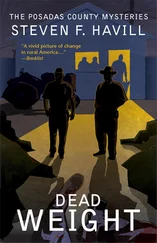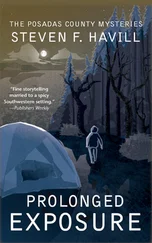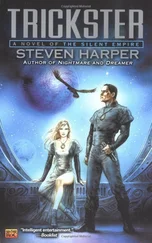Steven Dubner - Freakonomics
Здесь есть возможность читать онлайн «Steven Dubner - Freakonomics» весь текст электронной книги совершенно бесплатно (целиком полную версию без сокращений). В некоторых случаях можно слушать аудио, скачать через торрент в формате fb2 и присутствует краткое содержание. Жанр: Старинная литература, на русском языке. Описание произведения, (предисловие) а так же отзывы посетителей доступны на портале библиотеки ЛибКат.
- Название:Freakonomics
- Автор:
- Жанр:
- Год:неизвестен
- ISBN:нет данных
- Рейтинг книги:3 / 5. Голосов: 1
-
Избранное:Добавить в избранное
- Отзывы:
-
Ваша оценка:
- 60
- 1
- 2
- 3
- 4
- 5
Freakonomics: краткое содержание, описание и аннотация
Предлагаем к чтению аннотацию, описание, краткое содержание или предисловие (зависит от того, что написал сам автор книги «Freakonomics»). Если вы не нашли необходимую информацию о книге — напишите в комментариях, мы постараемся отыскать её.
Freakonomics — читать онлайн бесплатно полную книгу (весь текст) целиком
Ниже представлен текст книги, разбитый по страницам. Система сохранения места последней прочитанной страницы, позволяет с удобством читать онлайн бесплатно книгу «Freakonomics», без необходимости каждый раз заново искать на чём Вы остановились. Поставьте закладку, и сможете в любой момент перейти на страницу, на которой закончили чтение.
Интервал:
Закладка:
The radio producers began to write four weeks’ worth of programs in which Superman would wipe out the Ku Klux Klan.
Kennedy couldn’t wait for the first Klan meeting after the show hit the air. Sure enough, the Klavern was in distress. The Grand Dragon tried to run a normal meeting but the rank and file shouted him down. “When I came home from work the other night,” one of them complained, “there was my kid and a bunch of others, some with towels tied around their necks like capes and some with pillowcases over their heads. The ones with capes was chasing the ones with pillowcases all over the lot. When I asked them what they were doing, they said they were playing a new kind of cops and robbers called Superman against the Klan. Gangbusting, they called it! Knew all our secret passwords and everything.
I never felt so ridiculous in all my life! Suppose my own kid finds my Klan robe some day?”
The Grand Dragon promised to expose the Judas in their midst.
“The damage has already been done,” said one Klansman.
“Our sacred ritual being profaned by a bunch of kids on the radio!” said the Kladd.
“They didn’t put it all on the air,” the Grand Dragon offered.
“What they didn’t broadcast wasn’t worth broadcasting,” said the Kladd.
The Dragon suggested they change their password immediately, from “red-blooded” to “death to traitors.”
After that night’s meeting, Kennedy phoned in the new password to the Superman producers, who promised to write it into the next show. At the following week’s Klan meeting, the room was nearly empty; applications for new membership had fallen to zero.
Of all the ideas that Kennedy had thought up—and would think up in the future—to fight bigotry, his Superman campaign was easily the cleverest and probably the most productive. It had the precise effect he hoped: turning the Klan’s secrecy against itself, converting precious knowledge into ammunition for mockery. Instead of roping in millions of members as it had just a generation earlier, the Klan lost momentum and began to founder. Although the Klan would never quite die, especially down South—David Duke, a smooth-talking Klan leader from Louisiana, mounted legitimate bids for the U.S. Senate and other offices—it was also never quite the same. In The Fiery Cross: The Ku Klux Klan in America, the historian Wyn Craig Wade calls Stetson Kennedy “the single most important factor in preventing a postwar revival of the Ku Klux Klan in the North.”
This did not happen because Kennedy was courageous or resolute or unflappable, even though he was all of these. It happened because Kennedy understood the raw power of information. The Ku Klux Klan was a group whose power—much like that of politicians or real-estate agents or stockbrokers—was derived in large part from the fact that it hoarded information. Once that information falls into the wrong hands (or, depending on your point of view, the right hands), much of the group’s advantage disappears.
In the late 1990s, the price of term life insurance fell dramatically. This posed something of a mystery, for the decline had no obvious cause. Other types of insurance, including health and automobile and homeowners’ coverage, were certainly not falling in price. Nor had there been any radical changes among insurance companies, insurance brokers, or the people who buy term life insurance. So what happened?
The Internet happened. In the spring of 1996, Quotesmith.com became the first of several websites that enabled a customer to compare, within seconds, the price of term life insurance sold by dozens of different companies. For such websites, term life insurance was a perfect product. Unlike other forms of insurance—
including whole life insurance, which is a far more complicated financial instrument—term life policies are fairly homogeneous: one thirty-year, guaranteed policy for $1 million is essentially identical to the next. So what really matters is the price. Shopping around for the cheapest policy, a process that had been convoluted and time-consuming, was suddenly made simple. With customers able to instantaneously find the cheapest policy, the more expensive companies had no choice but to lower their prices. Suddenly customers were paying $1 billion less a year for term life insurance.
It is worth noting that these websites only listed prices; they didn’t even sell the policies. So it wasn’t really insurance they were peddling. Like Stetson Kennedy, they were dealing in information. (Had the Internet been around when Kennedy infiltrated the Klan, he probably would have rushed home after each meeting and blogged his brains out.) To be sure, there are differences between exposing the Ku Klux Klan and exposing insurance companies’ high premiums. The Klan trafficked in secret information whose secrecy engendered fear, while insurance prices were less a secret than a set of facts dispensed in a way that made comparisons difficult. But in both instances, the dissemination of the information diluted its power. As Supreme Court Justice Louis D. Brandeis once wrote,
“Sunlight is said to be the best of disinfectants.”
Information is a beacon, a cudgel, an olive branch, a deterrent, depending on who wields it and how. Information is so powerful that the assumption of information, even if the information does not actually exist, can have a sobering effect. Consider the case of a one-dayold car.
The day that a car is driven off the lot is the worst day in its life, for it instantly loses as much as a quarter of its value. This might seem absurd, but we know it to be true. A new car that was bought for $20,000 cannot be resold for more than perhaps $15,000. Why? Because the only person who might logically want to resell a brand-new car is someone who found the car to be a lemon. So even if the car isn’t a lemon, a potential buyer assumes that it is. He assumes that the seller has some information about the car that he, the buyer, does not have—and the seller is punished for this assumed information.
And if the car is a lemon? The seller would do well to wait a year to sell it. By then, the suspicion of lemonness will have faded; by then, some people will be selling their perfectly good year-old cars, and the lemon can blend in with them, likely selling for more than it is truly worth.
It is common for one party to a transaction to have better information than another party. In the parlance of economists, such a case is known as an information asymmetry. We accept as a verity of capitalism that someone (usually an expert) knows more than someone else (usually a consumer). But information asymmetries everywhere have in fact been mortally wounded by the Internet.
Information is the currency of the Internet. As a medium, the Internet is brilliantly efficient at shifting information from the hands of those who have it into the hands of those who do not. Often, as in the case of term life insurance prices, the information existed but in a woefully scattered way. (In such instances, the Internet acts like a gigantic horseshoe magnet waved over an endless sea of haystacks, plucking the needle out of each one.) Just as Stetson Kennedy accomplished what no journalist, do-gooder, or prosecutor could, the Internet has accomplished what no consumer advocate could: it has vastly shrunk the gap between the experts and the public.
The Internet has proven particularly fruitful for situations in which a face-to-face encounter with an expert might actually exacerbate the problem of asymmetrical information—situations in which an expert uses his informational advantage to make us feel stupid or rushed or cheap or ignoble. Consider a scenario in which your loved one has just died and now the funeral director—who knows that you know next to nothing about his business and are under emotional duress to boot—steers you to the $7,000 mahogany casket. Or consider the automobile dealership: the salesman does his best to obscure the car’s base price under a mountain of add-ons and incentives. Later, however, in the cool-headed calm of your home, you can use the Internet to find out exactly how much the dealer paid the manufacturer for that car. Or you might just log on to www.TributeDirect.com and buy that mahogany casket yourself for just $3,200, delivered overnight. Unless you decide to spend $2,995 for “The Last Hole” (a casket with golf scenes) or “Memories of the Hunt” (featuring big-racked bucks and other prey) or one of the much cheaper models that the funeral director somehow failed even to mention.
Читать дальшеИнтервал:
Закладка:
Похожие книги на «Freakonomics»
Представляем Вашему вниманию похожие книги на «Freakonomics» списком для выбора. Мы отобрали схожую по названию и смыслу литературу в надежде предоставить читателям больше вариантов отыскать новые, интересные, ещё непрочитанные произведения.
Обсуждение, отзывы о книге «Freakonomics» и просто собственные мнения читателей. Оставьте ваши комментарии, напишите, что Вы думаете о произведении, его смысле или главных героях. Укажите что конкретно понравилось, а что нет, и почему Вы так считаете.











